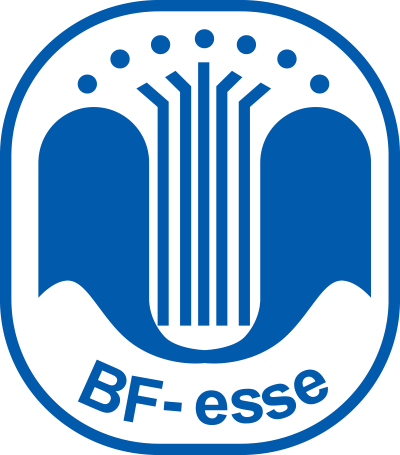Assistance with Dietary Supplement Registration
Dietary supplements are products designed to complement the diet by providing additional nutrients such as vitamins, minerals, amino acids, and other active ingredients.
They play a crucial role in maintaining health and preventing various diseases by enhancing daily nutrition.
They play a crucial role in maintaining health and preventing various diseases by enhancing daily nutrition.

Dietary Supplement Registration Assistance and Services
Key Regulations Governing Dietary Supplements in the EU

Directive 2002/46/EC on Food Supplements
This directive sets the framework for the harmonization of rules related to the sale of food supplements in the EU. It establishes the specific requirements for vitamins and minerals used in dietary supplements, including their forms and purity criteria. Additionally, the directive mandates that all food supplements must be safe for consumption and properly labeled to provide consumers with adequate information about the product, such as ingredients, nutritional values, and recommended daily doses.

Regulation (EU) No 1169/2011 on the Provision of Food Information to Consumers
This regulation focuses on ensuring that consumers have access to comprehensive and accurate information about the food products they purchase, including dietary supplements. It requires clear labeling of ingredients, nutritional information, allergen warnings, and other relevant details. The regulation also emphasizes the importance of transparency and prohibits misleading claims about the health benefits or nutritional properties of supplements.

Regulation (EC) No 1924/2006 on Nutrition and Health Claims
This regulation governs the use of nutrition and health claims made on food products, including dietary supplements. It requires that any claims regarding the health benefits of a supplement (e.g., "supports immune function" or "reduces tiredness and fatigue") must be substantiated by scientific evidence and approved by the European Food Safety Authority (EFSA). Claims that are not on the approved list are prohibited, and misleading or unverified claims are not allowed.

Regulation (EC) No 178/2002 – General Food Law Regulation
This is a foundational regulation that provides the overarching framework for food safety in the EU. It sets out the general principles and requirements of food law, including the responsibilities of food business operators and the role of the EFSA in providing scientific advice and risk assessments. For dietary supplements, this regulation emphasizes the importance of ensuring that all products placed on the market are safe and do not pose any risk to human health.

Regulation (EC) No 1333/2008 on Food Additives
This regulation governs the use of additives in food products, including dietary supplements. It establishes a positive list of permitted additives, such as sweeteners, colorants, and preservatives, along with their conditions of use. Only additives that have been evaluated and deemed safe by the EFSA are allowed in dietary supplements, and their use must comply with the specific requirements outlined in the regulation.

Regulation (EU) No 2015/2283 on Novel Foods
This regulation addresses the authorization and marketing of novel foods, which include ingredients not commonly consumed in the EU before May 1997. If a dietary supplement contains a novel food ingredient, it must undergo a safety assessment and receive approval from the European Commission before it can be marketed in the EU.

Non-compliance with these regulations can lead to severe consequences,
such as fines and a ban on product sales.
To successfully register a dietary supplement in the EU, businesses must follow these steps:
The registration process typically takes between 2 to 6 months, depending on various factors.
Compliance with Composition Requirements
Ensure that the product's ingredients, including vitamins, minerals, and any other substances, comply with the specifications and purity criteria set by Directive 2002/46/EC and other relevant regulations.
Labeling and Claims Verification
Develop product labels that meet the requirements of Regulation (EU) No 1169/2011, providing accurate and clear information about the product's composition, usage instructions, and potential allergens. Verify that any nutrition or health claims comply with Regulation (EC) No 1924/2006.
Notification to National Authorities
In some EU Member States, businesses must notify the relevant national authorities before placing a dietary supplement on the market. This notification typically involves providing a copy of the product label and other relevant documentation, such as the composition and safety data.
Safety Assessment for Novel Ingredients
If the supplement contains a novel food ingredient, submit a dossier to the EFSA for a safety assessment and obtain the necessary authorization under Regulation (EU) No 2015/2283.
Monitoring and Post-Market Surveillance
After the product is placed on the market, continuously monitor its safety and compliance. Report any adverse effects or safety concerns to the relevant national authorities as part of post-market surveillance obligations.
Hiring a specialized company to assist with the registration process offers several advantages:

Time Efficiency
Professionals handle all stages of registration, reducing the time required.

Reduced Risk
Experienced specialists help minimize the risk of registration rejection.

Regulatory Compliance
The company ensures that all documents and procedures adhere to current regulations and standards.
Services Offered by BF-ESSE for Dietary Supplement Registration in the EU:
Consultations
Expert advice on all registration and regulatory matters.
Laboratory Research Coordination
Organization and oversight of laboratory testing.
Documentation Preparation
Assistance with collecting and processing all required documents.
Application Submission and Support
Submission of the application to the appropriate authorities and ongoing support throughout the registration process until the certificate is obtained.
Advantages of Partnering with BF-ESSE for Dietary Supplement Registration
When you choose BF-ESSE for “Assistance with Dietary Supplement Registration in the EU,” you benefit from:
-

Customized Approach
Tailored services that consider all client needs and specific requirements. -

Comprehensive Support
From the initial consultation to obtaining the registration certificate. -

Guaranteed Results
Successful registration within the specified time frame. -

Professional Expertise
Highly qualified specialists with extensive experience in dietary supplement registration.
If you want to register your dietary supplements in the EU quickly and efficiently,
contact the experts at BF-ESSE We offer a full range of services at competitive prices, ensuring a successful and timely registration process. Trust us with your needs, and we will deliver reliable results!

Request a quote
Send us a request and we will respond to any questions you may have
Arturs Rubens
Executive Director, BF-ESSE
Executive Director, BF-ESSE
+371 673 23 499
Brivibas gatve 369 k-2, Riga, Latvija,
LV-1024
LV-1024






